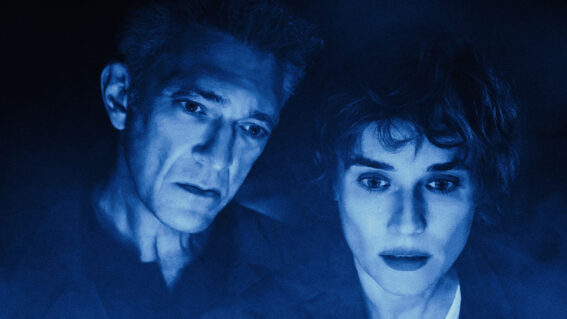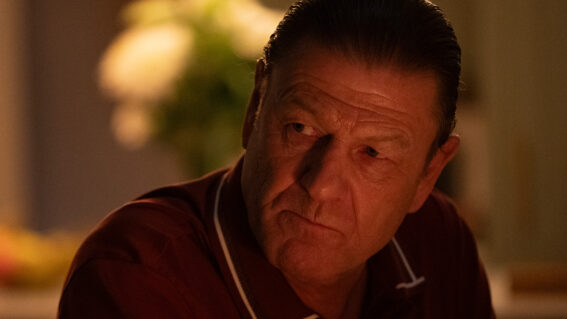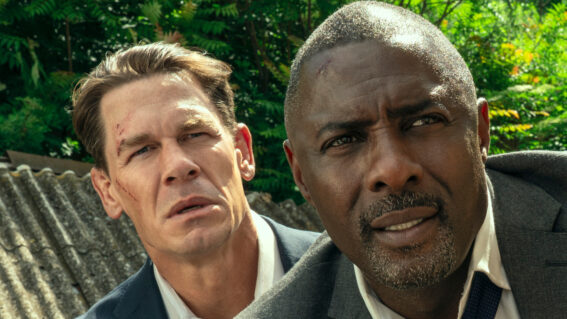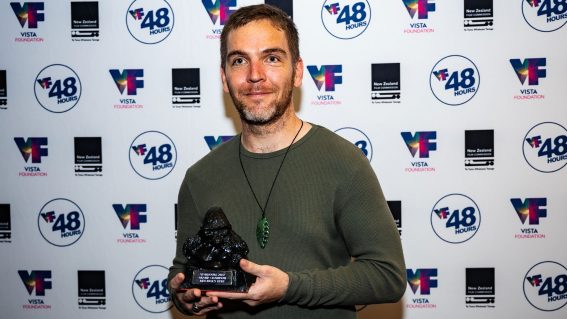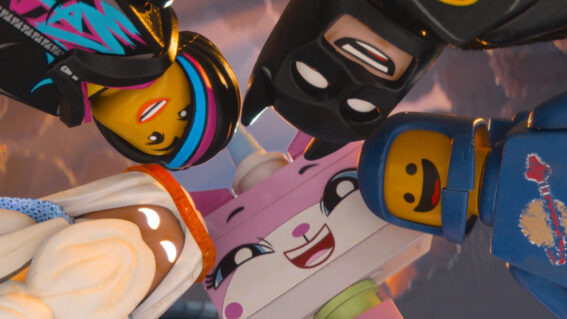‘The Changeover’ Directors On Margaret Mahy & Trusting Teen Audiences
This week, the big screen adaptation of Margaret Mahy’s The Changeover opens in cinemas nationwide. Set in post-earthquake Christchurch, The Changeover tells the story of troubled teenage Laura Chant (Erana James) who must ‘change over’ and become a witch in order to save her little brother from an evil ancient spirit (Timothy Spall). Flicks’ Liam […]
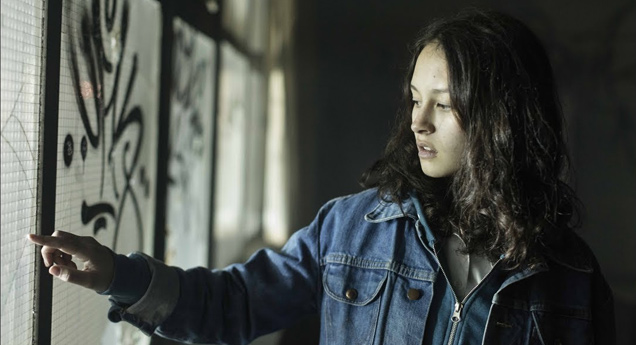
This week, the big screen adaptation of Margaret Mahy’s The Changeover opens in cinemas nationwide. Set in post-earthquake Christchurch, The Changeover tells the story of troubled teenage Laura Chant (Erana James) who must ‘change over’ and become a witch in order to save her little brother from an evil ancient spirit (Timothy Spall).
Flicks’ Liam Maguren talked to the film’s directors Miranda Harcourt and Stuart McKenzie about Mahy, trusting its teenage audience, filming in Christchurch, and a lovely email from Timothy Spall.
FLICKS: It’s been a few years now since the young adult boom of films like ‘Twilight’ and ‘The Hunger Games’. How does it feel to release this supernatural YA adaptation today?
STUART MCKENZIE: In a funny way, Margaret herself was like the godmother of the YA genre. She kind of invented that and is widely recognised as that with The Changeover and some of her other works. In some ways, she was really ahead of that wave. But the wave has kept on going, so some films like Harry Potter and The Hunger Games have had a big international impact.
I think that we’re in a kind of privileged position because the film is a very kind of New Zealand spin on that. It has the opportunity to impact on a big stage, but just like Margaret herself, where she embedded the supernatural in the natural, that’s what we’re going with our film.
I think it’s very distinctive. It has its own spin on that genre.

It can be difficult adapting someone’s work while also putting your own creative signature on it. How did you manage that?
MIRANDA HARCOURT: I think there’s some interesting elements to the film that go further than they do in the book. It’s interesting because at the moment Radio New Zealand are playing at 10:45am every morning a reading of the book, which actually I recorded 33 years ago, which is the year the book first came out.
Stuart and I have a very long relationship with this book over all that time, although it’s only the last few years that we’ve set out to adapt it. But as you know, when you adapt a book, you can’t just do what’s on the page. You have to put your own spin on it and you have to take some things further and some things you have to lose altogether.
All of those things have happened in our adaptation in the edit process.
There’s such a huge fan base for the book worldwide. If you Google The Changeover book reviews or something, there’s pages and pages and pages of fans comments about the book and how it’s changed people’s lives. We’ve got people following us from Trinidad, there’s a huge Italian love for the book. So we’ve borne in mind all the way along the process the fact that that we’re dealing with a property that is very emotionally important to a lot of people, so you can’t mess with it too much.
We feel confident that we’ve stuck to the spirit of the book. The feedback we’ve had from people, those who have seen the film and loved the book, is that we’ve really answered the spirit of the book whilst also making it very filmic.
MCKENZIE: We had a very clear idea of how we wanted to approach the book. In many adaptations, as Miranda says, things obviously have to change from one medium to another. But we honed in on what we regarded as the real DNA of the story, which is the heroine’s journey and Margaret’s wonderful ability to set a supernatural story in the everyday world.
Also, we wanted to feel the story through Laura as the lead character. Those three elements can have a really strong kind of basis on which to make the adaptation and keep the spirit.
What is the biggest potential pitfall filmmakers could fall into when adapting a book to screen?
HARCOURT: Underestimating the intelligence and emotional smarts and sophistication of the audience.
It’s interesting for me to see how different ages read our film in different ways because we tried to embed into the fabric of the film different forms of danger. So 15, 16-year-old girls read it very differently to 13-year-old girls. They respond to different things in the story.
What I’m loving at the moment, when we get feedback from teenagers, is the different levels of awareness. I feel very proud of the fact that we have not underestimated our audience at all. It’s a sophisticated story about the dangers in a very contemporary world for a very contemporary girl.
MCKENZIE: I think one of the dangers that, not necessarily you have as a filmmaker, but that audiences have, is feeling that the film has to be exactly the same as the book. That’s kind of an impossible ideal.
We had the privilege of working with Margaret, she read a couple of drafts of the script early on before she passed away. She always encouraged us to find our own Changeover and find the spirit of the story that could translate to the film.
There are deep cinematic themes that run through the book, not least of all, the idea of change. In that respect, it was a great book to approach.
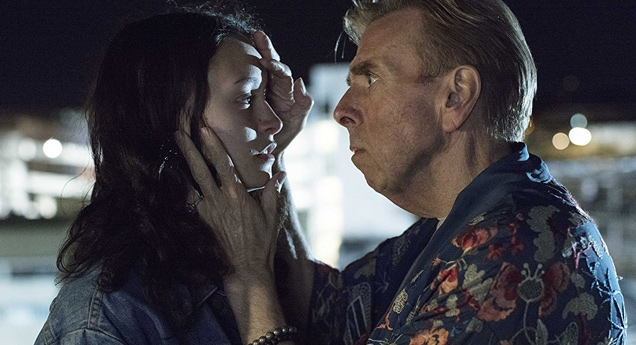
Unlike the book, the film is set in a post-earthquake Christchurch. How did you approach this altered setting?
HARCOURT: Interestingly, when Stuart was reading the book again recently, there’s a whole page where she references the earthquakes of the future.
MCKENZIE: It was kind of spooky. After the earthquake had happened, we were wondering, “Okay. How does this impact the adaptation and where we might set it?” We were constantly going back to the book.
An image that hadn’t had an impact on me in previous readings was when Laura goes inside herself to change herself in the book, she hears the ominous rumble of earthquakes coming from the future. I went, “Whoa. That’s like the book is laid out in front of me as tarot pack, and I’m getting kind of images and steerings from the book.”
We felt very confident about setting it in post-earthquake Christchurch for a couple of reasons. Christchurch is the spiritual home of the book. That’s where it was set, and that’s where Margaret was from. But also, as it turns out, we don’t hammer this home, but the brokenness of the city is kind of a metaphor for the brokenness and the transformation of Laura as a character. So there are beautiful resonances.
HARCOURT: We’ve got a girl who was a Christchurch teen. When she saw it, she emailed us immediately and went, “Oh my God. This is exactly the kind of weird shit that me and my brother got up to when we were teenagers immediately after the earthquake in Christchurch.”
The whole opening sequence of Laura doing a dangerous stunt on the merry-go-round and the feeling that kids are just running wild through the city, unsupervised, in the new and very dangerous environment because of recently evacuated buildings. Going into the recently evacuated buildings when you’re not allowed to. There was a real sense of danger for teenagers but also adventure and excitement in post-earthquake Christchurch. And she totally recognised that sensation in the film.
It’s also a great excuse to put Timothy Spall in a shipping container.
HARCOURT: Yeah. That is good.
MCKENZIE: He loved coming over here and filming it. It was very moving for us, actually. We sent him a link recently of the completed film and he came back immediately to say he completely loved it. It was really wonderful for us to read that.
HARCOURT: Yeah. We can’t use it in the media because it’s just so full of swear words. That’s how much he loved it.
We’re happy to post swear words.
My dear Stu and my dear Mir,
Just finished watching the movie
It is absolutely fucking marvellous!!!
Original, mysterious, hypnotic, sensual, compelling, poetic and constantly involving, I could go on.
You’ve pulled it off and made a unique and tremendously affecting (and on top of that entertaining) piece of cinema.
Well done my dear people I’m taking all my hats off to you both and throwing them in the air in celebration of your achievement.
… Erana really is absolutely tip-top ! And so is everyone else. the entire bunch of us (the old geezer with the sinister stamps is alright as well …I suppose ) in front of and behind the camera, have really stepped up to the plate.
It’s all a testament to your work, devotion, determination and deep feeling for a project that you’ve alchemised into pure unique gold.
With admiration and love,
Tim
Xxx









